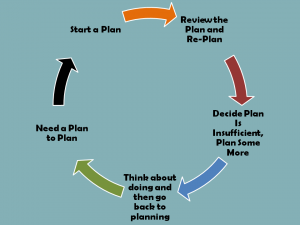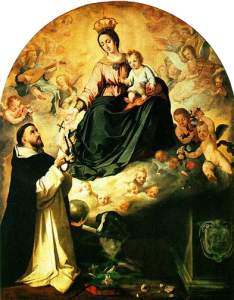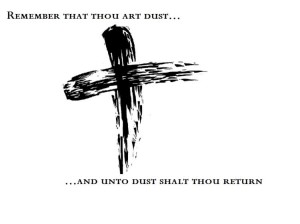Anyone who has known me for any length of time knows I am a consummate planner. I do nothing – nothing – without first planning out not only the steps but the likely outcomes and potential required adjustments for each individual step. I even mentally optimize each step to try to minimize the distance covered or energy or time required. I like to say that I try to plan for the likely so I can anticipate the unlikely and still even deal with the impossible. It’s a good theory and has just enough to it that it even sounds plausible.
Then there are days like today when I’m hit in the face with examples of people doing exactly the opposite of that and somehow by some foreordained miracle not failing miserably. Clearly if my optimizations are so critical to success these people must have succeeded out of sheer chance or dumb luck. They probably win the lottery three times in a month too – yes, that must be it.
 Only they don’t. Rather than meticulously planning out the most minute parts of every step before even getting started these people did what they thought was the good and right thing and then worried about the details when they actually came up. It’s amazing what has happened in the lives of the two people I’m thinking about as well, all related in some way to their willingness to not plan out every last step.
Only they don’t. Rather than meticulously planning out the most minute parts of every step before even getting started these people did what they thought was the good and right thing and then worried about the details when they actually came up. It’s amazing what has happened in the lives of the two people I’m thinking about as well, all related in some way to their willingness to not plan out every last step.
The first one is a friend of a friend who spoke at our Mens’ Group meeting this morning. He titled his talk, “How hard could it be?” because he found in much of his life that this thought had recurred to him over and over at critical junctures in his life and when he followed through he wound up making giant leaps forward that would seem improbable to impossible for a planner like me. I won’t recount his story here because I could never do it justice but his stack of success at a young age made me wonder just a little bit about this recurring theme in his life.
The second hit me as my wife and I were praying the Rosary while driving home from a visit to my in-laws’. In the second Joyful mystery we contemplate Mary’s Visitation to the house of Zechariah and Elizabeth. Now this is a young woman who has just been told by an angel that even though she is a virgin she is going to bear the Son of the Most High and without a full blown planning session or a second pass to micro-optimize her expected steps she utters words upon which hang so much of the fate of creation, “Behold, I am the handmaid of the Lord; let it be to me according to your word.” (Lk 1:38)
But wait, she’s not done yet. Being told of the pregnancy of her cousin, “In those days Mary arose and went with haste into the hill country, to a city of Judah, and she entered the house of Zechariah and greeted Elizabeth.” (Lk 1:39-40) She didn’t take her time and carefully plan out her path and all possible contingencies and contingencies for the contingencies. She “went with haste“. If this kind of leap-without-looking (or so it seems to this consummate planner) thing is not considered a fault in Mary, and clearly we believe it is not, then perhaps there’s something to it after all.
You see, the one thing all this planaholism (I think I just invented a word) lacks, and the one great thing both this man and Mary showed, is faith. I plan, and I think many who are like me do the same, so that I can have control over everything that happens and minimize on my own whatever damage might come. These two think just long enough to discern God’s will and then without any more hesitation they act knowing that God will fill in the pieces of the puzzle for them as they go. Somehow they’ve found that balance between acting without thorough planning and planning so much you never actually act.
If we – if I – get nothing else out of this Lent I hope a slightly greater willingness to step out in faith might be the one thing we receive. I haven’t yet figured out how it’s all supposed to work (see, there it goes again) but if it’s good enough for Mary and she was good enough to bear the Son of God then it quite well ought to be good enough for me. May you all have a holy and blessed Holy Week and bear in mind that it is not ours but God’s plan that matters in the end.
Image credit: Perfectly Cursed Life








